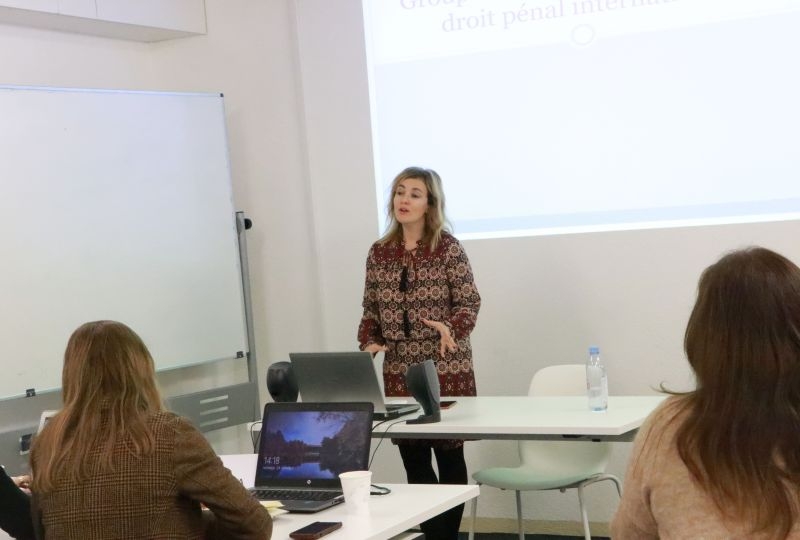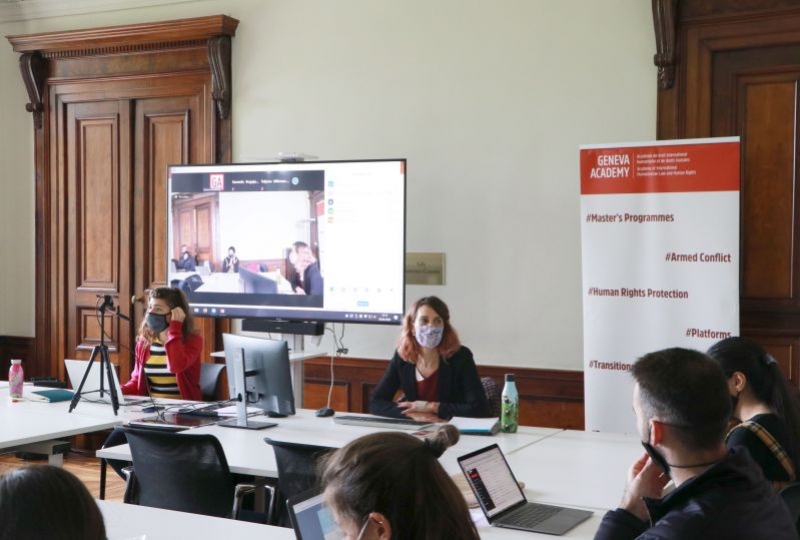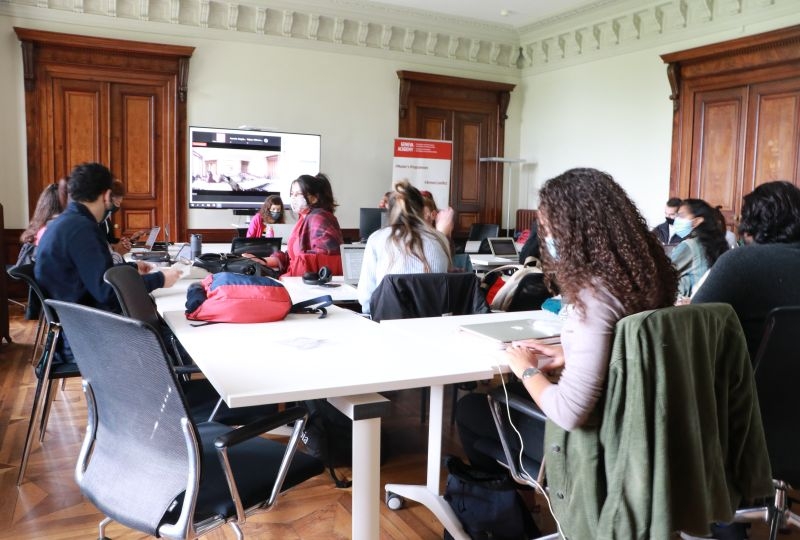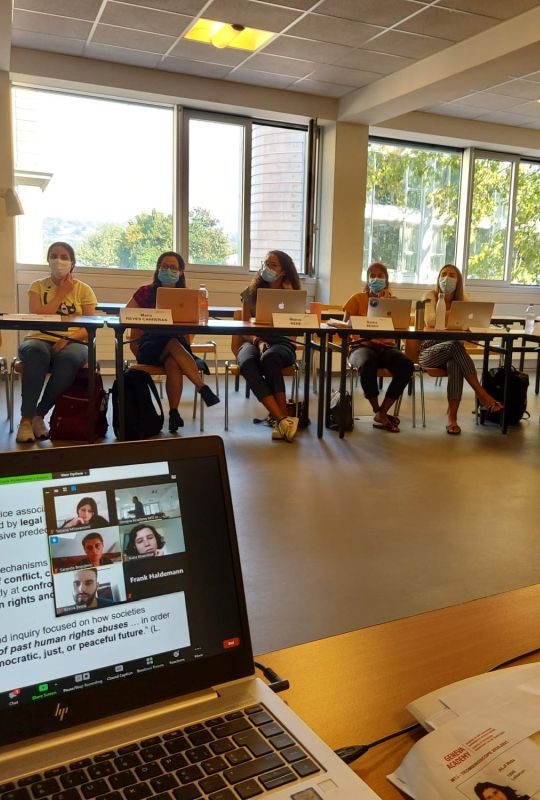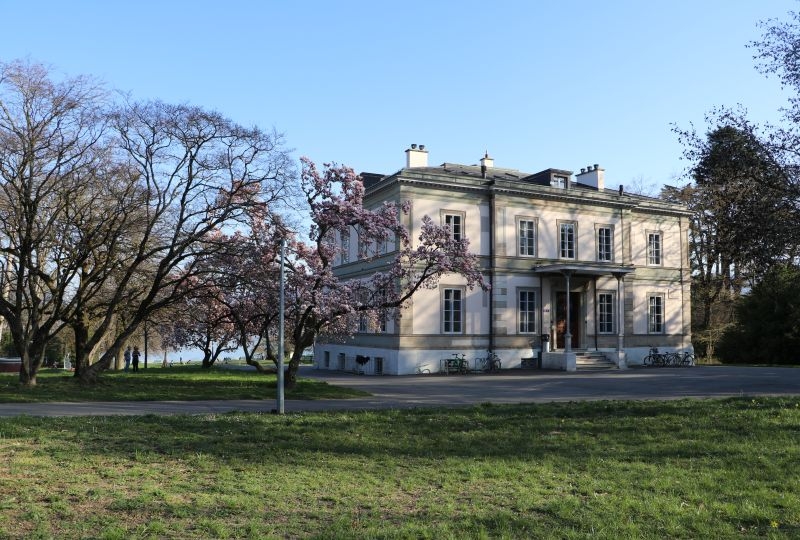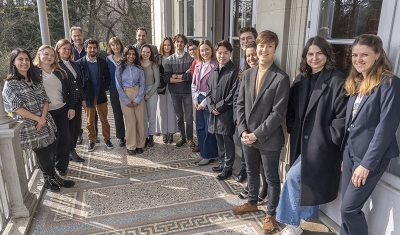Our professors, teaching assistants and staff have developed a great deal of new skills with online teaching since a year now and our staff is strongly mobilized to provide professional support to both faculty and students. Every effort is therefore made to continuously improve the online teaching experience.
Our experience also shows that if needed most extracurricular activities – like events, exchanges with practitioners or seminars –can successfully take place online. Studying and working remotely also brings new opportunities for students, including the possibility to hear from and exchange with experts in the field and participate in events with speakers from all around the world.
‘The whole world has suffered from the COVID-19 pandemic and from governmental measures taken to fight it. So have our students. Nevertheless, my experience as teacher in the last 11 months of hybrid and online teaching has been that students were able to study seriously, to plead interactively, to become a real class and not simply a number of individuals on computer screens, and to be more successful in very serious exams than they had been on average previously. We changed the teaching and learning method considerably, to make it even more interactive and I will keep many of these changes even when we will be able to come back, as we all hope, as soon as possible to face-to-face teaching to the greatest possible percentage of students’ says Professor Marco Sassòli.


